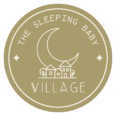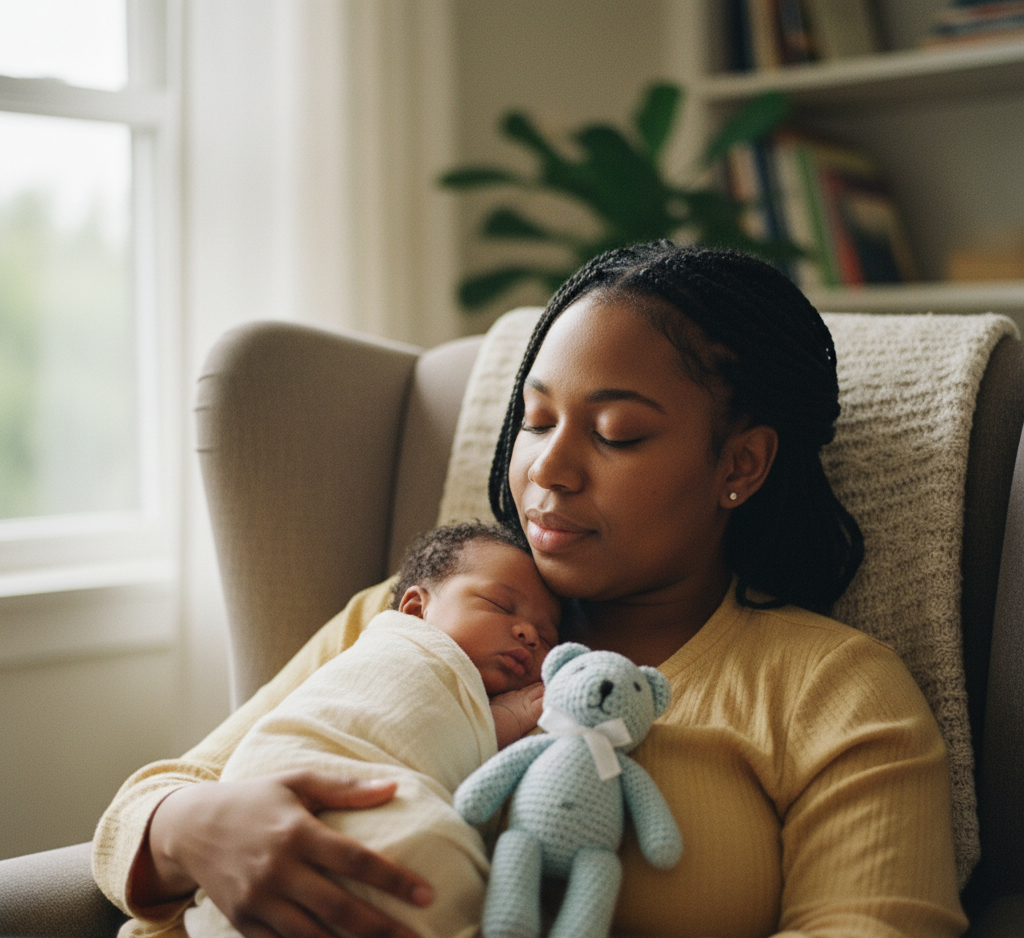Your Sleep & Your Mood, What New Science Means for Newborn Moms
A large longitudinal study found that a mother’s sleep and mood influence each other from late pregnancy through the first two years, offering hopeful, practical ways to protect both.
If you’ve ever felt “more tired, more emotional, more everything” in the newborn season, you’re not alone, and you’re not imagining it. New research following first-time mothers from late pregnancy to two years postpartum shows that sleep and mood shape each other over time. That means caring for your sleep is mental-health care, and caring for your mood helps sleep.
What the new study actually found
- Bi-directional link: Across the first two years postpartum, poorer maternal sleep predicted later increases in depression/anxiety, and elevated mood symptoms predicted later sleep problems.
- Six months matters: A mom’s sleep at around 6 months postpartum showed particularly strong effects on later mood.
- Baby factor: More infant night wake time around 12 months predicted higher maternal depressive symptoms at 24 months.
Source: Astbury et al., 2025, Scientific Reports.
So… is sleep training harmful for newborns?
The study wasn’t about “sleep training” methods, it examined natural patterns in maternal sleep, infant wake time, and maternal mood over time. What it tells us is this: supporting your sleep gently and consistently can protect mood, and easing baby’s overnight wake time later in the first year may also reduce risk for maternal depression down the road. The best approach is always responsive, age-appropriate, and aligned with your values.
Practical, gentle steps you can start this week
- Create a calming wind-down: 15–20 minutes of dim lights, diaper, cuddle, short song, repeatable cues help both body and brain.
- White noise: A steady, soft sound helps babies transition to sleep and masks sudden household noise.
- Morning sunlight & evening dim: Get outside with baby in the morning, lower lights ~45 minutes before bedtime to support circadian rhythm.
- Partner hand-off: Even 20–30 minutes for a shower or quiet cup of tea reduces stress load and supports sleep later.
- Realistic nap/awake windows: Age-appropriate timing prevents over-tiredness (a major sleep wrecker).

When to ask for extra support
If you’re feeling persistently down, anxious, or overwhelmed, please reach out to your healthcare provider. This is common and treatable. The study’s big picture is hopeful: improving sleep can improve mood, and improving mood can improve sleep — they lift each other.

About Mariana Yancik
Mariana is a pediatric sleep consultant and founder of The Sleeping Baby Village. She helps newborn and infant families find calm, connection, and rest using gentle, evidence-informed strategies. Her approach blends responsive routines, developmental timing, and parent-friendly tools you can actually use on real-life days.
Astbury, L., Crowther, M. E., Pinnington, D. M., Milgrom, J., & Bei, B. (2025). Bi-directional associations between maternal and infant sleep, and maternal mental health from late pregnancy to 2 years postpartum. Scientific Reports, 15, 24076. https://www.nature.com/articles/s41598-025-09541-7.



